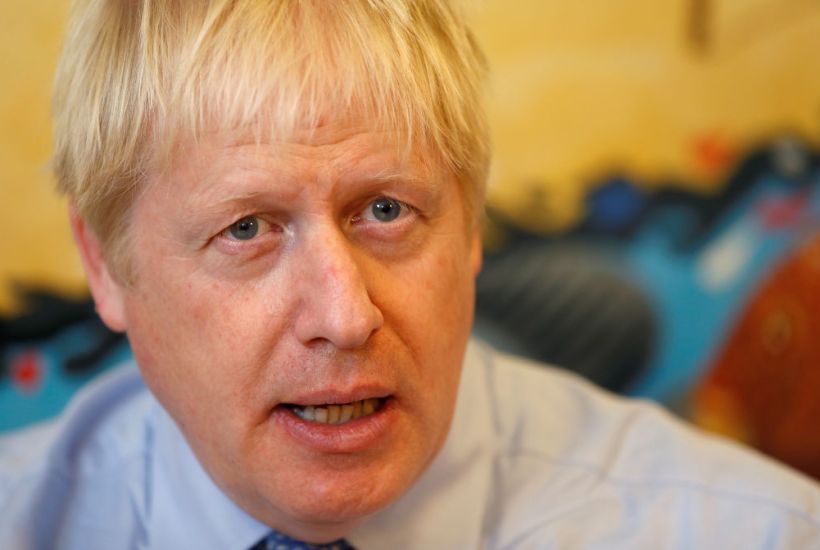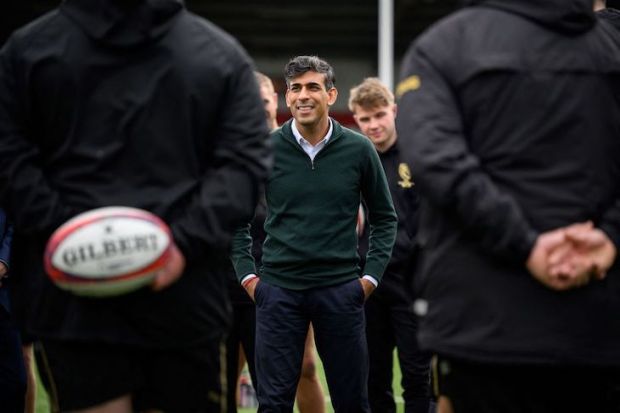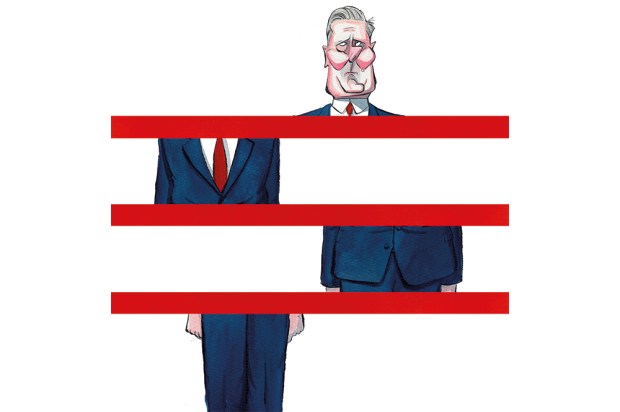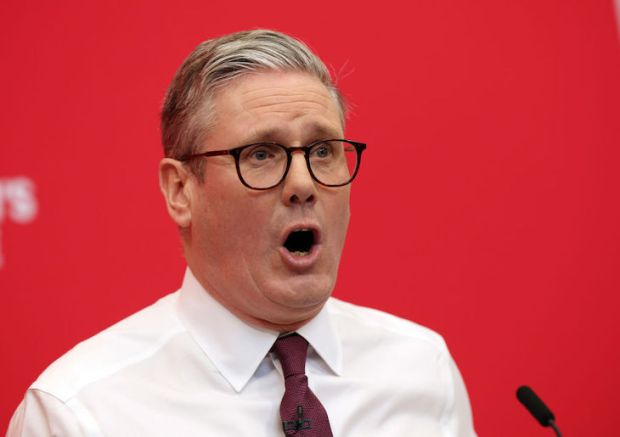There is arguably the most important conflict raging in the Tory party since Churchill replaced Chamberlain as PM in 1940. Although we are living through 1940 in reverse, because Johnson is already the self-defined “war-time” PM, the wannabe Churchill, when some of his colleagues want something and perhaps someone else.
Forget the battle between government and opposition, what matters most right now is the fight between Boris Johnson and his consigliere Dominic Cummings on one hand against a minority of senior Conservative MPs led by Philip Hammond, David Gauke and Greg Clark – the so-called Gaukeward Squad – over whether a no-deal Brexit is preferable to a Brexit delay.
At stake is pretty much everything from whether Johnson survives as PM, to whether the UK ever leaves the EU. Here are the battle lines.
The Gaukeward Squad is implacably and irreconcilably detached from Johnson and Cummings, on two matters of judgement:
First, they regard a no-deal Brexit as the great looming catastrophe for country and party – where Johnson and Cummings see the risks to country as exaggerated, and fear their party would be annihilated if there were a further postponement of Brexit.
Second, Hammond and co do not believe there are any realistic circumstances in which the EU would agree to Johnson’s request to dump the backstop – the insurance plan to keep the border on the island of Ireland open.
Whereas Johnson and Cummings think there is a chance the EU would move, but only if EU leaders were confident that Johnson is in office and in charge for the duration.
Here is the nightmare of an assessment MPs from all parties must make: in siding with Hammond and the Gaukeward Squad, would they be throwing the Brexit baby out with the no-deal bathwater, as Johnson avers? Or would they be draining the no-deal swamp and leaving behind the golden negotiated Brexit that might one day re-unite a fractious UK, as the Gaukeward Squad would have it?
Some MPs may be influenced by the feedback from Johnson’s diplomatic missions in the coming days to Berlin, Paris and the G7 group of leading nations in Biarritz. But those missions will not be decisive, in part because this can’t and won’t be settled by rational argument, but by faith. This is is a quasi-religious war in which reason has a role, but as a weapon not an olive branch. There is not long to wait however for the moment of apotheosis.
We will know at some juncture between 3 September and 12 September, when Parliament resumes temporarily before party conferences, whether MPs have the will – and the means – to legislate against a no-deal Brexit; and failing that, whether they have the will and the means to evict Johnson from 10 Downing Street. To be clear, we may not in just those few days see the end of the process to stymie Johnson, but we’ll know if any of the gambits are credible.
Until then, Tusk, Juncker, Merkel, Macron and Varadkar have no incentive to be flexible on the backstop. Why should they be conciliatory to a British PM who may soon be an irrelevance? In fact, since they would rather the UK never leaves the EU, all their incentives are to stand firm against him.
Only if Johnson survives until 12 September would EU leaders actually face a definitive and irreversible decision whether to negotiate with him on the backstop during four insanely intense weeks before the EU council of 17-18 October. Or – if that for them would be an impossible betrayal of Ireland – whether they should consider measures to soften the harshest impact of a no-deal Brexit. Here is how to think about quite what a burden rests on Tory MPs – and others – when they return from their holidays in a few days.
If they back Johnson’s no-to-the-backstop stance, they may well end up with a no-deal Brexit. But there’s a slim chance that at the last they’ll get the negotiated Brexit many of them crave. Johnson probably delivers some kind of Brexit and perhaps sees off the threat to the Tories of Farage and the Brexit party.
By contrast, if they back Hammond’s no-to-no-deal-Brexit, they may avoid the most precipitate and harshest of departures from the EU – but what flows from that would be anyone’s guess. It could be the end of Brexit, it could be the end of the Tory party. Or maybe not.
Maybe for a while it would be dull Parliamentary stagnation, while all sides take stock of what British people and EU nations actually want – or can, as a minimum, tolerate.
What most of Johnson’s opponents have failed to notice is that he revels in the idea that we are in a national emergency, that it is life or death for the UK, that we are a country metaphorically at war.
As the self-proclaimed Brexit Churchill, the recent leak of the civil-service Operation Yellowhammer evaluation of the damaging impact of no-deal suited Johnson in one important sense – because it added to the idea that he and the nation are struggling against a sinister enemy, those who would either ignore the revealed will of the people to leave the EU or fabricate hardship as Brexit’s harvest.
Of course the stakes are – objectively speaking – very high. But right now, the debate is being widely framed in a histrionic way that most likely yields victory for Johnson. He wins if the Gaukeward Squad flops, obviously.
But even if they win, and he then calls a general election – which Parliament fails to block – he may well be the ultimate victor, on his pitch as champion of the people against an anti-democratic opposition and fifth columnists in his own party working to overturn the result of that referendum.
So although I still regard an autumn election as almost inevitable, the rational position of MPs opposed to a no-deal Brexit – or to any Brexit – may be to refuse to allow Johnson his election, and keep this lame duck, ungovernable Parliament in existence for as long as possible. Lawd preserve us.
Robert Peston is ITV’s political editor. This article originally appeared on his ITV news blog
Got something to add? Join the discussion and comment below.
Get 10 issues for just $10
Subscribe to The Spectator Australia today for the next 10 magazine issues, plus full online access, for just $10.





















Comments
Don't miss out
Join the conversation with other Spectator Australia readers. Subscribe to leave a comment.
SUBSCRIBEAlready a subscriber? Log in